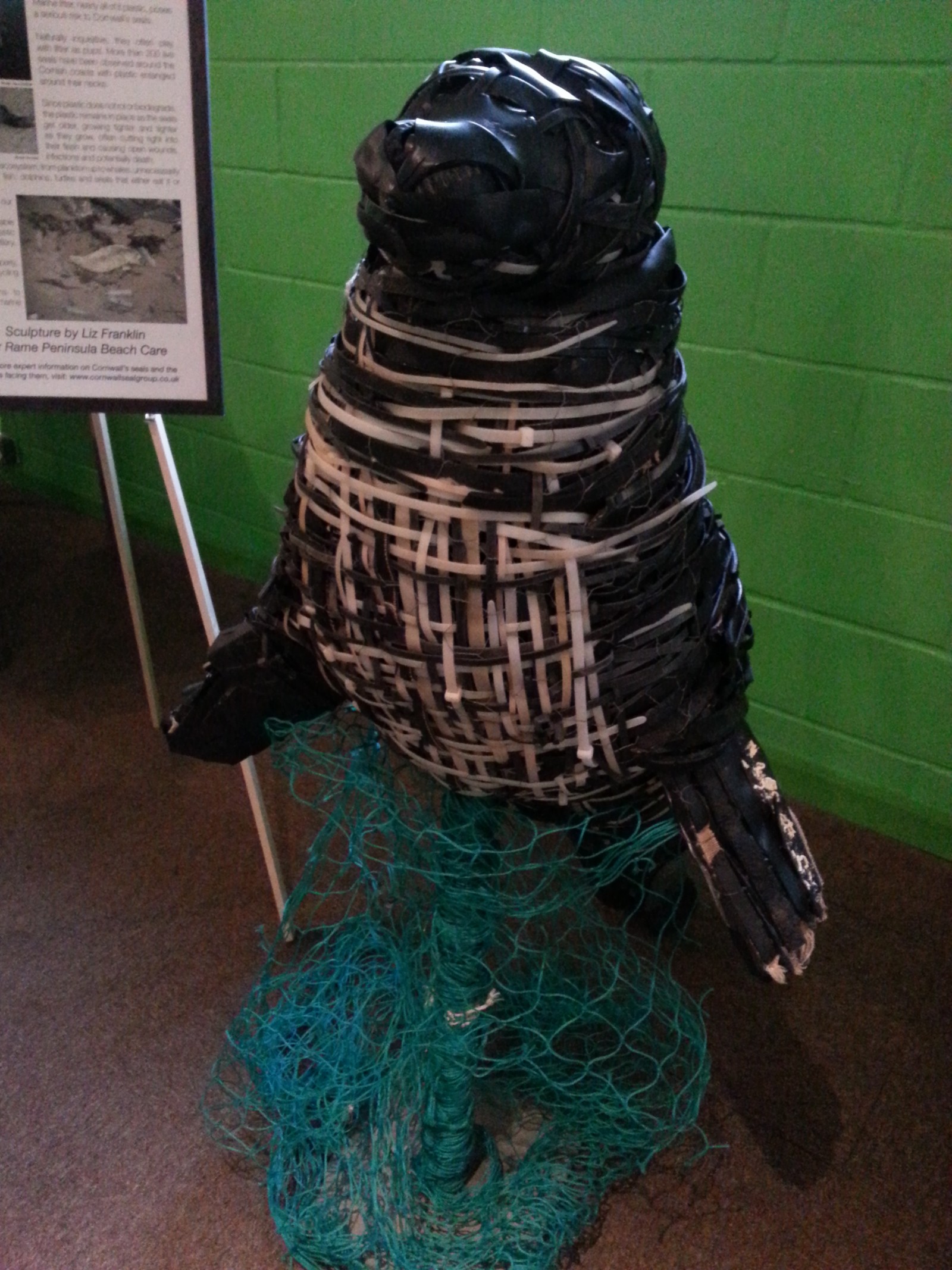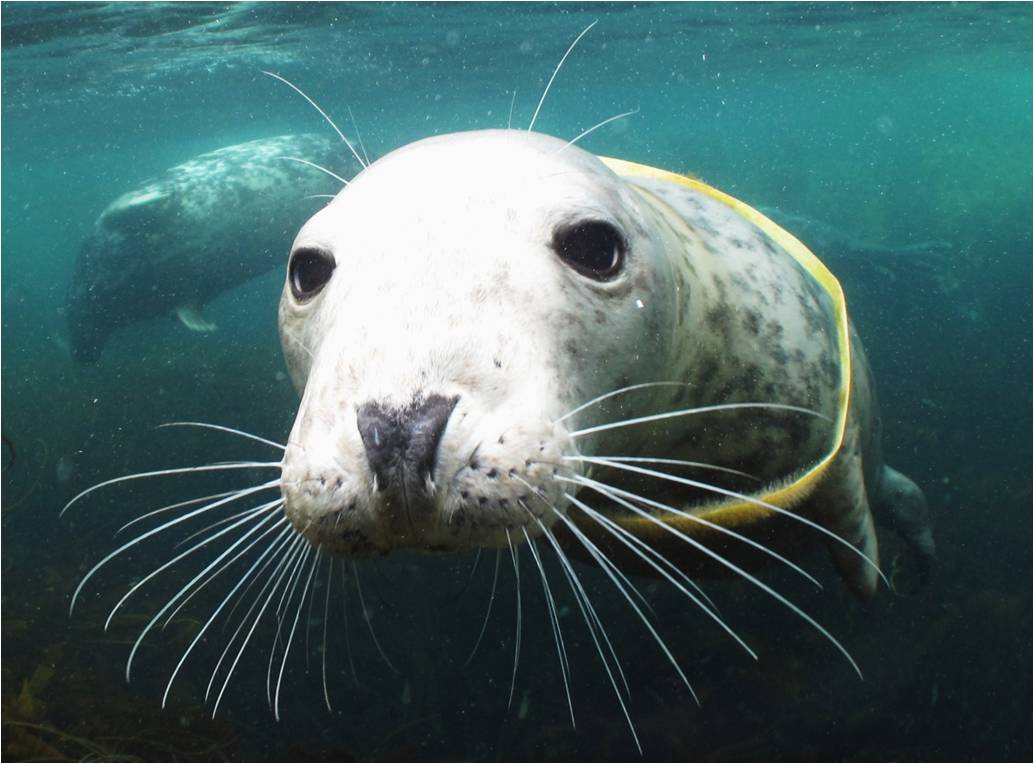Strangled by our Trash
This grey seal sculpture was made by RPBC artist Liz Franklin out of hundreds of plastic cable ties and other waste washed up on Cornish beaches.
Marine litter, nearly all of it plastic, poses a serious risk to Cornwall’s seals.
Naturally inquisitive, they often play with litter as pups. More than 250 live seals have been observed around the Cornish coast with plastic entangled around their necks.
Since plastic does not rot or biodegrade, the plastic remains in place as the seals get older, growing tighter and tighter as they grow, often cutting right into their flesh and causing open wounds, infections and potentially death.
Plastic waste affects the whole marine ecosystem, from plankton up to whales, unnecessarily killing and maiming millions of birds, fish, dolphins, turtles and seals that either eat it or become entangled in it.
Please do all you can to protect our ocean creatures by:
- Cutting out single use disposable plastic (plastic shopping bags, plastic water bottles, plastic straws and cutlery, etc.).
- Disposing of all plastic properly, cutting through any loops, and recycling where possible.
- Participating in beach cleans to help remove plastic from our marine environment.
For more expert information on Cornwall’s seals and the threats facing them, visit the Cornwall Seal Group website.
More than 250 live seals around the Cornish coast are living with plastic entangled around their necks.


